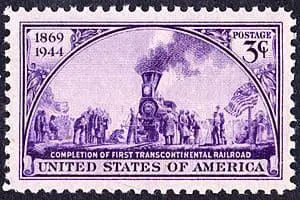“Inbound marketing is hard work, really hard work. Sure there is heavy use of big data and marketing automation, but the fact remains that inbound marketing is just plain hard work.” ~ Mile Volpe, HubSpot CMO
Inbound marketing is really hard work
 The first transcontinental railroad in the United States was a 1,907 mile contiguous railroad line constructed between 1863 and 1869 that connected San Francisco with Council Bluffs, Iowa, on the Missouri River.
The first transcontinental railroad in the United States was a 1,907 mile contiguous railroad line constructed between 1863 and 1869 that connected San Francisco with Council Bluffs, Iowa, on the Missouri River.
The manual labor to build the railroad’s roadbed, bridges and tunnels was done primarily by many thousands of immigrant workers from China under the direction of skilled non-Chinese supervisors. The railroad laborers worked hard, often under uncomfortable or extreme conditions.
OK, inbound marketing isn’t THAT hard. But it’s challenging to work in a field where there are always many moving parts, multiple simultaneous campaigns, and new technology tools coming out (seemingly) daily. On top of that, Google keeps changing the playing field.
Inbound marketing is real and it produces real results for businesses
- 60% of companies are executing inbound marketing strategies in 2013. (State of Inbound Marketing 2013)
- In 2013, 41% of marketers confirm inbound produces measurable ROI, and a staggering 82% of marketers who blog see positive ROI for their inbound marketing. (State of Inbound Marketing 2013)
- Inbound marketing-focused organizations see a 61% lower cost-per-lead than outbound-focused companies.
Inbound marketing is not a channel or a technology, it’s a strategy: it’s not enough to “do” inbound. To see real results, you need to deeply commit to the model and optimize continually. Marketers that succeed with inbound marketing dedicate a high level of time, commitment, and resources to getting it right.
Unfortunately, as of late 2013, it’s still very difficult to find an inbound marketer in the job market. There simply aren’t very many people with the expertise to develop and execute a broad-based inbound marketing plan. To get great inbound marketers onto your team, you need to hire marketers, and train them in inbound methodologies and best practices.
Companies want the results, but lack the skills and the trained people
The learning curve in marketing automation and inbound marketing is a challenge. As circumstances in the environment change and circumstances in technology change (think “Hummingbird”), responding to these changes and adapting to a new environment adds to the challenge. Without experienced people, it’s reported that 85% of marketers still use marketing automation [only] for batch email campaigns (Gleanster); yet the same study discovered that the top five capabilities that top performers can’t live without include:
- Segmentation
- Drip and Trigger Marketing
- Campaign design and personalization
- CRM integration
- Sales alerts
We want the capabilities and we certainly want the results, but we just don’t have the internal expertise. This is where an agency partner comes in.
According to a recent Society of Digital Agencies report:
28% of agencies stated that in 2013 they are increasing their client education initiatives and training offerings, and
44% of agencies are offering mini-lectures to their clients and 25% are offering webinars for technology training purposes.
Inbound marketing agencies have the expertise
Many inbound marketing agencies now have the expertise and the talent to deliver inbound marketing’s promised results. These agencies can provide the resources, technology, education and content for highly effective marketing automation. They can function as your outsourced digital marketing department or as a temporary vendor while they train your internal team.
Here are the top 23 reasons why a company should choose an agency to implement their inbound marketing:
- Your competitors are using inbound marketing
- Supply of skilled workers
- Defined qualification process
- Clearly defined expectations
- Focus on your core competencies
- Effectively train internal resources
- Competitive advantage
- Access to a cross-section of skills
- You need more leads
- Unify sales and marketing
- Specialization in social, digital, interactive
- You can measure very element of inbound marketing and track ROI
- Accountability and responsiveness
- Improve time to market
- Sustainable staffing models
- Mentorship moments
- Agency stays current on latest changes in technology, SEO, best practices, etc.
- Improve employee opportunities for learning
- Creative process
- Proven success with inbound marketing
- Just-in-time vs just-for-now
- Minimize market unpredictability
- Uninterrupted operation and delivery
- Agility in changing business priorities
- Technology and marketing automation expertise
- Counter-balance a reorganization
- Agency becomes a “got your back” partner
 Integrating inbound marketing into the overall marketing mix is more important than ever. Content used to form the backbone of inbound efforts must be supported with other paid, earned and owned tactics to reach maximum effectiveness, and that requires plenty of internal cooperation and strategic planning.
Integrating inbound marketing into the overall marketing mix is more important than ever. Content used to form the backbone of inbound efforts must be supported with other paid, earned and owned tactics to reach maximum effectiveness, and that requires plenty of internal cooperation and strategic planning.
~ Jay Baer, author of “Youtility: Why Smart Marketing is About Help Not Hype”
Want to find out how an agency can help drive your inbound marketing? Get a free website assessment and strategy session to learn more about how you can add inbound to your marketing mix. As Jay says, it’s more important than ever!





